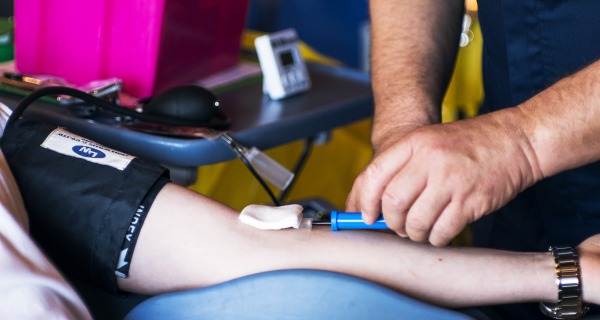Platelet Function Disorders
What?
PFDs stands for Platelet Function Disorders. These are rare blood conditions that affect the clotting ability of the blood. The term is applied to many conditions where platelets don’t work properly. Indeed, there are probably around 2000-5000 people in the UK who live with PFDs; it’s really hard to diagnose and data is confidential, so figures aren’t any clearer right now.
Platelets (or thrombocytes) are small bits in the blood that stick together when an injury occurs i.e. after a cut, to form a sort of plug and so stop the bleeding. If your platelets don’t work properly you bleed more than normal; this can vary from minor bruising to serious and life threatening bleeding after surgery or an accident.
There are different types of PFDs, some people have a normal platelet count, some have a low platelet count (Thrombocytopenia), some have a fluctuating count and some have irregular or mutated platelets. However, most PFDs are acquired i.e. they appear spontaneously or as a result of a change in the immune system or certain medications. These conditions can disappear or remit.
Still, there are a small number of people who are born with inherited PFDs, meaning that they will always have the condition. Ruby’s son, Noah, is one of these rare people. In fact, so rare, that he has five PFDs in all.
Who?
Anyone can have an inherited PFD. Diagnosis usually starts early in life as children often bruise when toddling or playing and because PFD could be a known factor within the family, so they are tested when they are very young.
However, acquired PFDs may appear spontaneously or because of an external factor. Reasons for this include changes in the immune system leading to immune thrombocytopenia purpura or ITP; see our Info page for more details, or kidney function changing the way platelets work. Many medications also disrupt platelet function such as painkillers, anti-inflammatories and anti-depressants.
How?
How PFDs affect life may depend on the type and severity of PFD. Some people have very minor bruising and others have severe bleeding which lead to conditions such as anaemia. The most severe bleeding is inside the head or brain. Please see our Help page for details of parenting a child living with the condition.
GPs will refer people with PFDs to a specialist and the pathway for care will be via the local Haemophilia Centre. The Centres are not always local, so people living with PFDs often have to have time away from school, work and their families. People with PFDs may carry an ‘emergency bag’ with medication and a ‘Green Card’ so treatment can be given quickly and correctly wherever they are. Indeed, travelling away from home on holiday can cause problems although there are ways to make sure that you can do this safely. Please see our Info page for more details.
Often people living with PFDs may be advised not to play certain sports like rugby or boxing in case of injury. However, lots of people with PFDs want to live their life to the full so find a way to make it work for them. We have lots of top tips for supporting this so please click to the Help page and see if they work for you!
However, sometimes the stigma of having ‘funny blood’ can cause heartache and it’s often tricky to manage with children who want to do the same as everyone else. Living with PFDs can also affect the families caring for people who have them. Ruby has been accused of abusing her son and understands how difficult it can be to care for a child living with PFDs. So, Funny Blood was set up to support families and signpost them to information collated over many years.
Treatments
There are a number of treatments for patients with inherited PFDs and they include :
- Tranexamic Acid (liquid, tablets or injections) which help strengthen blood clots and
- Desmopressin or DDAVP (nasal spray or injection) to help the platelets stick together.
- Other treatments for more serious bleeds help with the clotting of the blood like NOVOSeven
- and more recently – but rarely – a hormone called Thrombopoetin to stimulate platelets.
- In addition, and if necessary, platelet transfusions will be given.
Research
Noah and his family were asked to enter a clinical research project based at The University of Birmingham to help find out what’s wrong with Noah’s platelets, to increase understanding of how they work and what scientists can do to help sufferers of PFDs.
The research at The University of Birmingham has had some significant results which have been highlighted within The Guardian and The Observer on-line.
Advisors
The Funny Blood family includes a number of clinical and medical specialists who are involved in various projects, including the work we’re doing with the West Midlands Ambulance Service, so we can ensure all medical information regarding PFDs and related research is correct. More details about our Advisors can be found on our Blog.










